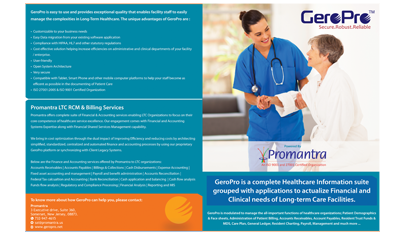Financial Compliance Pitfalls in Skilled Nursing

Financial compliance is a critical aspect of operating a Skilled Nursing Facility (SNF). Regulatory agencies such as Medicare, Medicaid, the Office of Inspector General (OIG), and the Centers for Medicare & Medicaid Services (CMS) enforce strict compliance rules. Failure to adhere to these regulations can lead to heavy fines, reimbursement denials, fraud investigations, and reputational damage. This guide will explore the most common financial compliance pitfalls that SNFs face, provide real-world case studies of costly mistakes, and outline proven strategies to ensure compliance while maintaining financial stability.
1. Common Financial Compliance Pitfalls in Skilled Nursing
1.1 Billing & Coding Errors
Errors in billing and coding are among the most frequent causes of compliance violations in SNFs. Mistakes such as incorrect PDPM coding, upcoding, duplicate billing, or missing documentation can result in claim denials and potential fraud investigations. Case Study: In 2022, a Florida-based SNF was fined $2.5 million for upcoding therapy services under Medicare Part A, inflating reimbursement claims. The facility lacked proper documentation, leading to fraud allegations and significant financial losses.
Best Practices:
- Regularly audit billing records to identify discrepancies.
- Train staff on accurate PDPM (Patient-Driven Payment Model) coding.
- Utilize AI-driven billing software to detect errors before submission.
1.2 Fraud & False Claims Act Violations
The False Claims Act (FCA) penalizes facilities that knowingly submit fraudulent claims to government healthcare programs. Even unintentional errors can lead to whistleblower lawsuits and severe penalties. Example: A California SNF paid $3 million in settlements after a whistleblower revealed that the facility billed Medicare for services that were never provided. The OIG launched an investigation, resulting in reputational damage and revenue loss.
Best Practices:
- Implement strict internal controls to detect fraudulent activity.
- Train staff in Medicare and Medicaid billing regulations.
- Establish an anonymous whistleblower hotline for internal reporting.
1.3 Inadequate Documentation & Medical Necessity Issues
CMS requires detailed documentation to justify skilled nursing care and rehabilitation services. Insufficient or missing documentation can lead to denied claims, recoupments, and audits. Case Study: A Texas SNF lost $500,000 in reimbursements after a CMS audit found that therapy services were not properly documented as medically necessary. The facility had to repay the funds and implement a corrective action plan.
Best Practices:
- Ensure all services are properly documented in patient records.
- Conduct regular documentation audits to meet CMS standards.
- Use EHR-integrated compliance tools for real-time documentation tracking.
1.4 Payroll-Based Journal (PBJ) Reporting Errors
Under CMS guidelines, SNFs must submit Payroll-Based Journal (PBJ) reports to verify compliance with staffing requirements. Incorrect or missing reports can lead to star rating reductions, penalties, and funding cuts. Example: A New York SNF received a 1-star rating after failing to report PBJ data correctly, causing a drop in admissions and financial instability.
Best Practices:
- Automate PBJ reporting to ensure accurate and timely submissions.
- Verify staffing compliance with CMS-mandated ratios.
- Cross-check PBJ data before submission to avoid discrepancies.
1.5 HIPAA & Data Security Breaches
Failure to protect patient data under HIPAA regulations can result in fines, lawsuits, and loss of patient trust. Data breaches often occur due to unsecured EHR systems, lack of encryption, or phishing attacks. Example: A Georgia SNF was fined $650,000 after a cyberattack exposed patient records. The facility had failed to implement proper security measures, leading to a class-action lawsuit.
Best Practices:
- Encrypt all patient records and implement multi-factor authentication.
- Conduct regular cybersecurity audits to identify vulnerabilities.
- Train staff in data privacy policies and phishing prevention.
2. How LTCPro Helps SNFs Avoid Financial Compliance Pitfalls
LTCPro is advanced compliance and financial management software designed specifically for Skilled Nursing Facilities. By automating compliance processes, it helps SNFs avoid penalties, fraud allegations, and billing errors.
2.1 Automated Billing & PDPM Compliance
- Detects billing errors before claiming submission.
- Ensure PDPM coding accuracy for maximum reimbursement.
- Reduces claim denials by up to 40% using AI-driven claim review.
2.2 Fraud Detection & Internal Audits
- Conducts real-time billing audits to flag potential fraud.
- Provides detailed compliance reports for internal oversight.
- Reduces FCA violation risk by enforcing accurate claims processing.
2.3 Secure Documentation & EHR Integration
- Automates documentation tracking, ensuring compliance with CMS.
- Integrates with Electronic Health Records (EHRs) for real-time updates.
- Prevents missing or incomplete medical necessity records.
2.4 PBJ & Staffing Compliance Management
- Automates PBJ reporting to avoid star rating reductions.
- Tracks real-time staffing compliance with CMS requirements.
- Reduces administrative burden by centralizing payroll data.
2.5 HIPAA-Compliant Data Security
- Provides end-to-end encryption for all patient records.
- Implement multi-layered cybersecurity protection.
- Ensures HIPAA compliance with real-time breach monitoring.
3. The Future of Financial Compliance in SNFs
As regulations continue to evolve, SNFs must adapt to new compliance challenges. Key trends shaping the future include:
- AI & Machine Learning for Predictive Compliance: AI-driven analytics will help SNFs detect compliance risks before they escalate.
- Blockchain for Secure Financial Transactions: Blockchain technology will enhance financial transparency and reduce fraud risks.
- Increased CMS Oversight: Stricter Medicare audits will require SNFs to invest in automated compliance solutions.
Avoiding financial compliance pitfalls is essential for the financial health and reputation of SNFs. Billing errors, fraud allegations, and HIPAA violations can lead to severe penalties, but proactive compliance management can prevent these risks.
Key Takeaways:
- Implement automated billing and audit tools to detect compliance errors.
- Ensure accurate documentation to support medical necessity claims.
- Use secure EHR systems to prevent HIPAA violations.
- Stay updated on CMS regulatory changes to avoid penalties.
- Leverage LTCPro for seamless financial compliance management.
A perfect fit for Skilled Nursing Facilities, Assisted Living Facilities, Home Health, Hospice and Other Day Care Centres.
Download BrochureRequest a demo


























